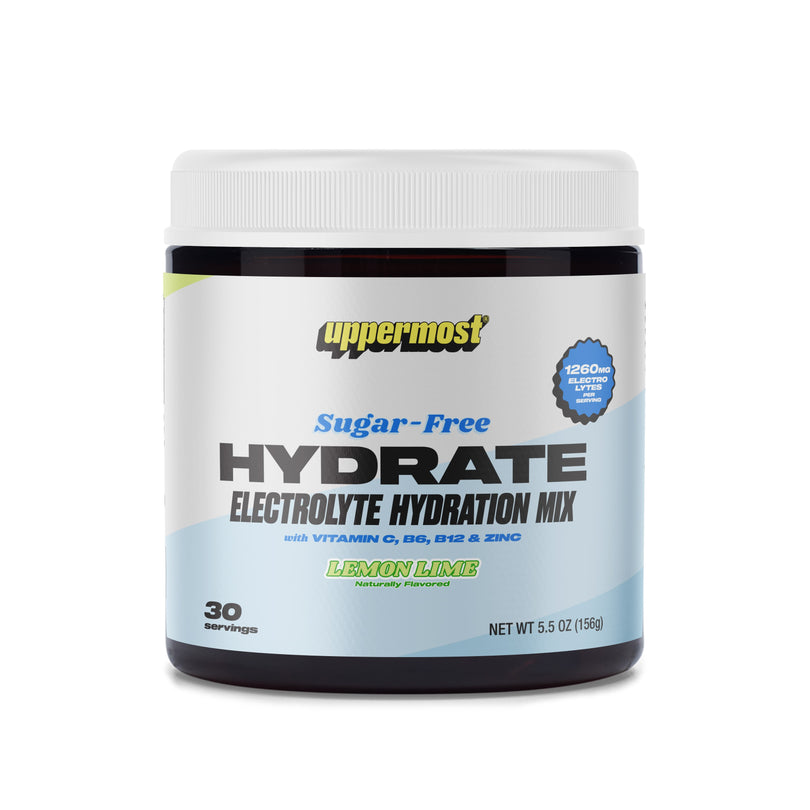Electrolytes are crucial for maintaining the body's proper function. These minerals, including sodium, potassium, calcium, and magnesium, are essential for various physiological processes, such as muscle contraction, nerve function, and hydration. When your body is low on electrolytes, it can lead to several health issues. Understanding these effects can help you prevent and manage electrolyte imbalances effectively.
Symptoms of Low Electrolytes
When your body lacks adequate electrolytes, you may experience a range of symptoms, including:
1. Muscle Cramps and Spasms
Electrolytes play a vital role in muscle function. A deficiency, particularly in potassium, calcium, or magnesium, can cause painful muscle cramps and spasms. These symptoms often occur during physical activity or at night.
2. Fatigue and Weakness
Low levels of sodium, potassium, or magnesium can lead to general fatigue and muscle weakness. Electrolytes are essential for energy production and maintaining muscle function, so a deficiency can result in a feeling of exhaustion.
3. Irregular Heartbeat
Electrolytes are critical for maintaining heart health. An imbalance, especially low potassium or magnesium, can cause heart palpitations or arrhythmias. In severe cases, this can lead to more serious cardiovascular issues.
4. Headaches and Dizziness
Sodium and potassium help regulate blood pressure and fluid balance. Low levels can cause dehydration, leading to headaches and dizziness. This is particularly common in individuals who engage in intense physical activity or spend long hours in the heat without proper hydration.
5. Nausea and Vomiting
Electrolyte imbalances, particularly low sodium levels (hyponatremia), can lead to gastrointestinal symptoms like nausea and vomiting. This condition can also cause a loss of appetite and abdominal cramps.
Causes of Electrolyte Imbalance
Several factors can contribute to low electrolyte levels, including:
1. Inadequate Intake
A diet lacking in essential minerals can lead to an electrolyte deficiency. This is often seen in individuals who follow restrictive diets or those with poor nutritional habits.
2. Excessive Sweating
Sweating due to intense physical activity, hot weather, or saunas can lead to significant electrolyte loss. It's crucial to replenish these minerals after heavy sweating.
3. Illness and Medication
Certain illnesses, such as diarrhea and vomiting, can cause rapid loss of electrolytes. Additionally, medications like diuretics and antibiotics can also disrupt electrolyte balance.
4. Chronic Conditions
Chronic conditions such as kidney disease, hormonal imbalances, and eating disorders can affect the body's ability to maintain proper electrolyte levels.
Preventing and Managing Low Electrolytes
To prevent and manage low electrolytes, consider the following strategies:
1. Maintain a Balanced Diet
Eating a diet rich in fruits, vegetables, nuts, and seeds can help maintain adequate levels of electrolytes. Foods like bananas, oranges, spinach, and yogurt are excellent sources of potassium, calcium, and magnesium.
2. Stay Hydrated
Ensure you drink plenty of fluids, especially water. During intense physical activity or in hot weather, consider beverages that contain electrolytes, such as our electrolyte hydration powder Hydrate.
3. Monitor Your Health
If you have a chronic condition or are taking medications that affect electrolyte levels, work closely with your healthcare provider to monitor and manage your electrolyte balance.
Conclusion
Electrolytes are essential for the body's overall function and well-being. Recognizing the symptoms of low electrolytes and understanding the causes can help you take proactive steps to maintain optimal levels. By ensuring a balanced diet, staying hydrated, and monitoring your health, you can prevent and manage electrolyte imbalances effectively.
Maintaining proper electrolyte levels is not just crucial for athletes but for anyone looking to sustain their health and vitality. Stay informed, stay hydrated, and make sure your body gets the essential minerals it needs.




